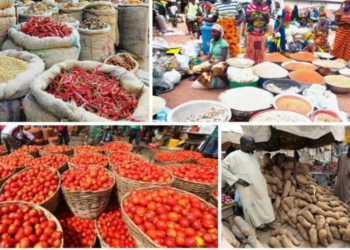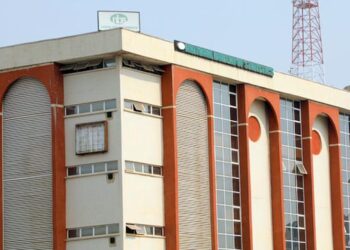Nigeria’s inflation rate stood at 18.12% in April 2021, indicating the first decline in headline inflation in about 20 months. This is contained in the Consumer Price Index report, recently released by the National Bureau of Statistics (NBS).
This represents a 0.05% point decline when compared to 18.17% recorded in March 2021.
- On a month-on-month basis, inflation dropped by 0.59% point compared to 1.56% recorded in March 2021 to stand at 0.97%.
- The urban inflation rate also declined from 18.76% recorded in March 2021 to 16.68%, while the rural inflation rate stood at 17.57%. A reduction compared 17.6% recorded in the previous month.
Food inflation
The closely watched index recorded a drop in the month of April 2021, from 22.95% recorded in March 2021 to 22.72%.
- On a month-on-month basis, the food sub-index increased by 0.99% in April 2021, down by 0.91% points from 1.9% recorded in March 2021.
- The average annual rate of change of the Food sub-index for the twelve-month period stood at 18.58%, indicating a 0.65% points higher than 17.93% recorded in the previous month.
- The rise in the food index was caused by increases in prices of coffee, tea and cocoa, Bread and cereals, soft drinks, milk, cheese and egg, vegetable, meat, oil and fats, fish and potatoes, yam, and other tubers.
Core inflation
The “All items less farm produce” or Core inflation, which excludes the prices of volatile agricultural produce stood at 12.74% in April 2021, this represents a 0.07% increase compared to 12.67% recorded in March 2021.
- On a month-on-month basis, the sub-index stood at 0.99% in April 2021. This was down by 0.07% points compared to 1.06% recorded in March 2021.
- The average 12-month annual rate of change of the index increased to 11.25% from 11.01% recorded in March 2021.
- The highest increases were recorded in prices of Pharmaceutical products, vehicle spare parts, hairdressing salons, and personal grooming establishment.
- It also includes garments, furniture and furnishing, medical services, shoes, and other foot wears, motor cars, major household goods, and fuel and lubricants for personal transport equipment.
State inflation rate
- In April 2021, all items inflation on a year-on-year basis was highest in Kogi State with 24.33%, Bauchi (22.93%), and Sokoto State (20.96%), while Abia State (15.94%, Kwara (15.7%), and Katsina (15.58%) recorded the slowest rise in headline inflation.
- In terms of food inflation, Kogi State recorded the highest with 30.52%, followed by Ebonyi State with 28.07%, and Sokoto (26.9%), while Abuja, Akwa Ibom, and Bauchi State recorded the slowest with 18.63%, 18.51%, and 17.64% increase respectively.
What this means
Nigeria recorded its first drop in headline inflation since the closure of the land borders in 2019. This could indicate that inflation has reached its peak in March and could be on its way down.

























I’m not sure this is entirely a good thing. I suspect it may signal a retraction of the economy. People aren’t spending because costs are too exorbitant, and producers/vendors are responding according by producing less and reducing prices.